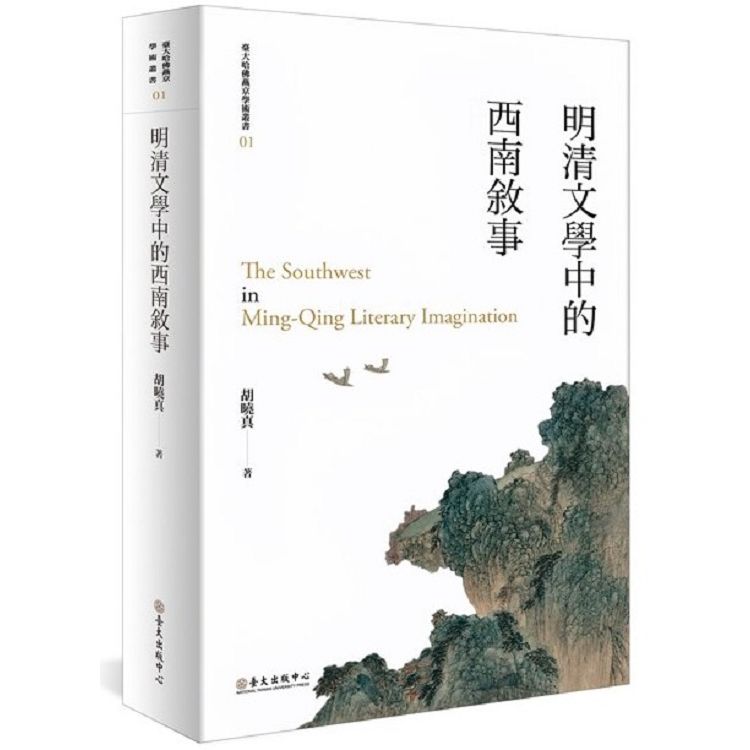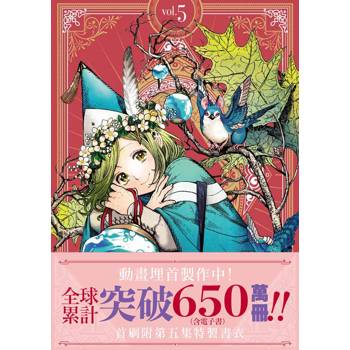◎首開將「西南」帶入中國文學研究領域,具有學術前瞻性的難得之作。
◎「西南」作為方法,意義不僅在於史地實證研究,更能捕捉書寫者面對西南複雜的經驗和反應。
在明清文學中,「西南」正是文化、政治、戰爭、美學、地理、民族、性別等諸多問題的輻輳交點。從外地到此的文人,以不同的方式處理自然與人文景觀所帶來的陌生感,他們的作品深切結合文化的衝擊與交流,表現出複雜的美學、情感與思想特色,亦關乎近代中國的地理學熱度、思想的發展與新世界觀的形成。因此,在文學審美、情感深度、歷史意識、文化體認乃至對世界的認知等等方面,明清文人的西南敘事提供了一個因其邊緣性而益顯鋒利的切入點。
全書共分為三編,第一編〈情感與世界〉描述明清文人面向西南、所展現的幽微心事以及世界觀。第二編〈戰爭與統治〉聚焦明清官員的戍守西南的紀實,包括明代田汝成《炎徼紀實》和清初田雯《黔書》等。第三編《性別、歷史與文化多音》則偏向傳統說部逸史,思考西南敍事——不論是人物列傳或是野史傳奇——衍生的過程。
作者胡曉真帶領讀者從志╱治書中,窺見文人的情感張力和教化美俗的淑世理想;對少數民族的描述在「獵奇」中,也同時領略出明清時人的「好奇」之心:既是對「蠻荒闢土」的探索,也是一種「神秘仙境」的想像;既是自我開放,也是面向外在的世界觀。本書以「文學感知」揭櫫,精彩呈現「西南」在明清敘事中的政治性(戰亂、治理)、文化性(教化)、社會性(禮儀、性別),乃至人文性(情感、詩意和美感),堪稱具有學術前瞻性的難得之作。
| FindBook |
有 9 項符合
明清文學中的西南敘事(平裝版)(二版)的圖書 |
 |
明清文學中的西南敘事(平裝版) 作者:胡曉真 出版社:國立臺灣大學出版中心 出版日期:2019-08-27 語言:繁體書 |
| 圖書選購 |
| 圖書館借閱 |
| 國家圖書館 | 全國圖書書目資訊網 | 國立公共資訊圖書館 | 電子書服務平台 | MetaCat 跨館整合查詢 |
| 臺北市立圖書館 | 新北市立圖書館 | 基隆市公共圖書館 | 桃園市立圖書館 | 新竹縣公共圖書館 |
| 苗栗縣立圖書館 | 臺中市立圖書館 | 彰化縣公共圖書館 | 南投縣文化局 | 雲林縣公共圖書館 |
| 嘉義縣圖書館 | 臺南市立圖書館 | 高雄市立圖書館 | 屏東縣公共圖書館 | 宜蘭縣公共圖書館 |
| 花蓮縣文化局 | 臺東縣文化處 |
|
|
圖書介紹 - 資料來源:博客來 評分:
圖書名稱:明清文學中的西南敘事(平裝版)(二版)
內容簡介
作者介紹
作者簡介
胡曉真
臺灣大學外文系學士,美國加州大學聖地牙哥校區比較文學碩士,美國哈佛大學東亞語言與文明系博士。現任中央研究院中國文哲研究所研究員兼所長。研究領域主要為明清敘事文學、明清婦女文學,以及清末民初文學。曾獲中央研究院年輕學者研究著作獎,國家科學委員會吳大猷先生紀念獎,中研院人文社會科學學術專書獎。著有《才女徹夜未眠──近代中國女性敘事文學的興起》(2003)與《新理想、舊體例與不可思議之社會──清末民初上海「傳統派」文人與閨秀作家的轉型現象》(2011);編有《世變與維新──晚明與晚清的文學藝術》(2001)、《日常生活的論述與實踐》(2011,與王鴻泰合編)等,另著有多篇學術論文。
胡曉真
臺灣大學外文系學士,美國加州大學聖地牙哥校區比較文學碩士,美國哈佛大學東亞語言與文明系博士。現任中央研究院中國文哲研究所研究員兼所長。研究領域主要為明清敘事文學、明清婦女文學,以及清末民初文學。曾獲中央研究院年輕學者研究著作獎,國家科學委員會吳大猷先生紀念獎,中研院人文社會科學學術專書獎。著有《才女徹夜未眠──近代中國女性敘事文學的興起》(2003)與《新理想、舊體例與不可思議之社會──清末民初上海「傳統派」文人與閨秀作家的轉型現象》(2011);編有《世變與維新──晚明與晚清的文學藝術》(2001)、《日常生活的論述與實踐》(2011,與王鴻泰合編)等,另著有多篇學術論文。
目錄
序文 寫在華夏邊緣╱王德威
自序
導論
第一編 情感與世界──西南敘事的內向與外向詮釋
第一章 從峒中跳月到天下輿圖
第二章 旅行、獵奇與禮學考古
第二編 戰爭與統治──官員視野的政治暴力與個人美感
第三章 炎徼與我鄉
第四章 治理之書與審美經驗
第三編 性別與歷史──明清與當代的交錯視域
第五章 前有奢香後良玉
第六章 華夏忠臣遭遇邊域倮蟲
第七章 代結論:征、流、寓
徵引書目
索引
自序
導論
第一編 情感與世界──西南敘事的內向與外向詮釋
第一章 從峒中跳月到天下輿圖
第二章 旅行、獵奇與禮學考古
第二編 戰爭與統治──官員視野的政治暴力與個人美感
第三章 炎徼與我鄉
第四章 治理之書與審美經驗
第三編 性別與歷史──明清與當代的交錯視域
第五章 前有奢香後良玉
第六章 華夏忠臣遭遇邊域倮蟲
第七章 代結論:征、流、寓
徵引書目
索引
序
序文
寫在華夏邊緣
王德威(美國哈佛大學東亞語言文明系暨比較文學系講座教授)
胡曉真博士新著《明清文學中的西南敘事》以晚期中華帝國為範疇,介紹西南地區的漢語文學書寫。所謂西南,泛指滇、黔、湘、桂交會處,並旁及川、藏一帶。這一地區山川地勢多變,民族文化複雜,相對於中原,一向被視為蠻夷之鄉。漢代《史記》首見對西南夷的記述,清代則以「改土歸流」政策將西南納入行政體系。千百年來,西南是被討伐、懷柔、教化的對象,也是被探勘、記錄、想像的目標。尤其明清兩代,來往西南的官吏過客商旅頻繁,留下大量文字紀錄,成為研究中央與邊陲關係的重要資料。
以往的西南研究多半著重在歷史輿地或邊政采風等方面,對於文學中的西南描述鮮少做出觀察,更不論作品中所透露的想像境界和情懷。《明清文學中的西南敘事》應是近年首開先例之作。胡曉真開宗明義,指出「西南」作為方法,意義不僅在於史地實證研究,更攸關一種喻意系統和感覺結構的呈現。文學未必總能提出信而有徵的議論,但卻更能捕捉一代又一代書寫者面對西南複雜的經驗和反應。更何況胡曉真所定義的文學,並不局限於二十世紀以來的狹義解釋。她認為文學不僅是詩歌、小說、戲曲、筆記;文學也涵蓋文字書帛所構成的龐大銘記書寫脈絡。從這樣的角度觀之,史傳、志書、奏議等文章之學,也一樣透露層層興觀群怨的軌跡。同理,胡曉真將她的研究重點置於敘事,著眼的不僅是稗官野史,也更是種種文類所構成的意義脈絡。甚或是以西南為坐標,審時觀世、銘刻人我關係的文化邏輯。
《明清文學中的西南敘事》共分為三編,充分顯示以上胡曉真對於「西南」、「文學」、「敘事」的觀點。第一編〈情感與世界〉描述明清文人面向西南所展現的幽微心事以及世界觀。胡以清初文人陸次雲《峒溪纖志》和陳鼎的《滇黔土司婚禮記》為例,探討這些中原文人涉足苗疆後情感經驗的解放或重組。不論跳月狂歡或嫁娶婚儀,苗寨風情讓這些文人或興世外桃源的嚮往,或有禮失求諸野的感嘆。但在搜奇志異的描述之下,陸、陳也企圖做出認識論層次的辯證。兩人作品一以「志」、一以「記」為名,暗示史傳敘事的向度。在中華帝國晚期疆域與視野不斷擴大的時刻,他們筆下的西南一方面從異鄉延伸出異域、異族、與異國的想像,一方面也成為個人心靈圖像虛實交織的倒影。兩者都透露了文學早期現代性的線索。
第二編〈戰爭與統治〉聚焦明清官員的戍守西南的紀實,包括明代田汝成《炎徼紀聞》和清初田雯《黔書》等。在這裡,征戰與羈縻,鎮壓與收編成為敘事主軸,明清之際帝國中樞與邊疆的緊張狀態,由此得見一斑。但胡曉真指出,這些戍邊官員不僅沿用了傳統史論形式注記他們的征伐、治理經驗,行有餘力,他們也觀察山川風物、俚俗民情。他們是戍邊官吏,但也是征人過客,也因此他們筆下的情與景形成微妙張力。甚至在約定俗成的政治論述裡,他們的文采陡然綻放,仿佛寫在國境邊緣,他們的思維和修辭也有了流變餘地。在此之上,胡曉真又介紹兩人的故鄉書寫。兩相對照,文本記實與地緣想像你來我往,形成奇妙互動。異鄉與故鄉何者更為「真實」,其實有待辨證。
第三編〈性別、歷史與文化多音〉則偏向傳統說部逸史,思考西南敘事—不論是人物列傳或是野史傳奇—衍生的過程。這是胡曉真的本行所在,看得出來更為得心應手。她處理西南傳奇女英雄奢香形象的崛起與轉化,同時觀察這一奇女子傳說與國族寓言的消長關係。論性別與地方及帝國歷史相互對話,這是絕佳範例。更值得注意的是清代的兩部小說,夏敬渠的《野叟曝言》和屠紳的《蟫史》。前者在儒家沙文主義大纛下引入怪力亂神因素;男女嚴防甚至以奇詭的性(別)幻想為前提。後者則以蟲螝作為隱喻,既貶抑蠻夷非我族類,卻又不乏自我嘲諷的意圖,所形成的「倮蟲」世界觀為中國敘事所僅見。西南位在華與夷、正統與玄怪折衝的焦點,也因此占據了發聲位置。
本書另有第七章〈征、流、寓〉,以近年所發現明代《大理古佚書鈔》三書為起點,思考「雲南無史」現象,以及邊疆文明面對中原正朔的慘烈歷史。此三冊佚書的失而復得如此傳奇,當然引起真偽之辨。但胡曉真更要強調的是,真偽與否,有關西南敘事的流失或再現本身,已經點出歷史或考古論述所隱藏的種種被改寫、禁毀、重刊、甚至偽造的動機和欲望。不論追本溯源或是節外生枝,帝國末期西南敘事的隱與顯都足以說明過去六百年來,這一地區作為政治、族群、文化衝突的書寫與權力關係。
寫在華夏邊緣
王德威(美國哈佛大學東亞語言文明系暨比較文學系講座教授)
胡曉真博士新著《明清文學中的西南敘事》以晚期中華帝國為範疇,介紹西南地區的漢語文學書寫。所謂西南,泛指滇、黔、湘、桂交會處,並旁及川、藏一帶。這一地區山川地勢多變,民族文化複雜,相對於中原,一向被視為蠻夷之鄉。漢代《史記》首見對西南夷的記述,清代則以「改土歸流」政策將西南納入行政體系。千百年來,西南是被討伐、懷柔、教化的對象,也是被探勘、記錄、想像的目標。尤其明清兩代,來往西南的官吏過客商旅頻繁,留下大量文字紀錄,成為研究中央與邊陲關係的重要資料。
以往的西南研究多半著重在歷史輿地或邊政采風等方面,對於文學中的西南描述鮮少做出觀察,更不論作品中所透露的想像境界和情懷。《明清文學中的西南敘事》應是近年首開先例之作。胡曉真開宗明義,指出「西南」作為方法,意義不僅在於史地實證研究,更攸關一種喻意系統和感覺結構的呈現。文學未必總能提出信而有徵的議論,但卻更能捕捉一代又一代書寫者面對西南複雜的經驗和反應。更何況胡曉真所定義的文學,並不局限於二十世紀以來的狹義解釋。她認為文學不僅是詩歌、小說、戲曲、筆記;文學也涵蓋文字書帛所構成的龐大銘記書寫脈絡。從這樣的角度觀之,史傳、志書、奏議等文章之學,也一樣透露層層興觀群怨的軌跡。同理,胡曉真將她的研究重點置於敘事,著眼的不僅是稗官野史,也更是種種文類所構成的意義脈絡。甚或是以西南為坐標,審時觀世、銘刻人我關係的文化邏輯。
《明清文學中的西南敘事》共分為三編,充分顯示以上胡曉真對於「西南」、「文學」、「敘事」的觀點。第一編〈情感與世界〉描述明清文人面向西南所展現的幽微心事以及世界觀。胡以清初文人陸次雲《峒溪纖志》和陳鼎的《滇黔土司婚禮記》為例,探討這些中原文人涉足苗疆後情感經驗的解放或重組。不論跳月狂歡或嫁娶婚儀,苗寨風情讓這些文人或興世外桃源的嚮往,或有禮失求諸野的感嘆。但在搜奇志異的描述之下,陸、陳也企圖做出認識論層次的辯證。兩人作品一以「志」、一以「記」為名,暗示史傳敘事的向度。在中華帝國晚期疆域與視野不斷擴大的時刻,他們筆下的西南一方面從異鄉延伸出異域、異族、與異國的想像,一方面也成為個人心靈圖像虛實交織的倒影。兩者都透露了文學早期現代性的線索。
第二編〈戰爭與統治〉聚焦明清官員的戍守西南的紀實,包括明代田汝成《炎徼紀聞》和清初田雯《黔書》等。在這裡,征戰與羈縻,鎮壓與收編成為敘事主軸,明清之際帝國中樞與邊疆的緊張狀態,由此得見一斑。但胡曉真指出,這些戍邊官員不僅沿用了傳統史論形式注記他們的征伐、治理經驗,行有餘力,他們也觀察山川風物、俚俗民情。他們是戍邊官吏,但也是征人過客,也因此他們筆下的情與景形成微妙張力。甚至在約定俗成的政治論述裡,他們的文采陡然綻放,仿佛寫在國境邊緣,他們的思維和修辭也有了流變餘地。在此之上,胡曉真又介紹兩人的故鄉書寫。兩相對照,文本記實與地緣想像你來我往,形成奇妙互動。異鄉與故鄉何者更為「真實」,其實有待辨證。
第三編〈性別、歷史與文化多音〉則偏向傳統說部逸史,思考西南敘事—不論是人物列傳或是野史傳奇—衍生的過程。這是胡曉真的本行所在,看得出來更為得心應手。她處理西南傳奇女英雄奢香形象的崛起與轉化,同時觀察這一奇女子傳說與國族寓言的消長關係。論性別與地方及帝國歷史相互對話,這是絕佳範例。更值得注意的是清代的兩部小說,夏敬渠的《野叟曝言》和屠紳的《蟫史》。前者在儒家沙文主義大纛下引入怪力亂神因素;男女嚴防甚至以奇詭的性(別)幻想為前提。後者則以蟲螝作為隱喻,既貶抑蠻夷非我族類,卻又不乏自我嘲諷的意圖,所形成的「倮蟲」世界觀為中國敘事所僅見。西南位在華與夷、正統與玄怪折衝的焦點,也因此占據了發聲位置。
本書另有第七章〈征、流、寓〉,以近年所發現明代《大理古佚書鈔》三書為起點,思考「雲南無史」現象,以及邊疆文明面對中原正朔的慘烈歷史。此三冊佚書的失而復得如此傳奇,當然引起真偽之辨。但胡曉真更要強調的是,真偽與否,有關西南敘事的流失或再現本身,已經點出歷史或考古論述所隱藏的種種被改寫、禁毀、重刊、甚至偽造的動機和欲望。不論追本溯源或是節外生枝,帝國末期西南敘事的隱與顯都足以說明過去六百年來,這一地區作為政治、族群、文化衝突的書寫與權力關係。
|











